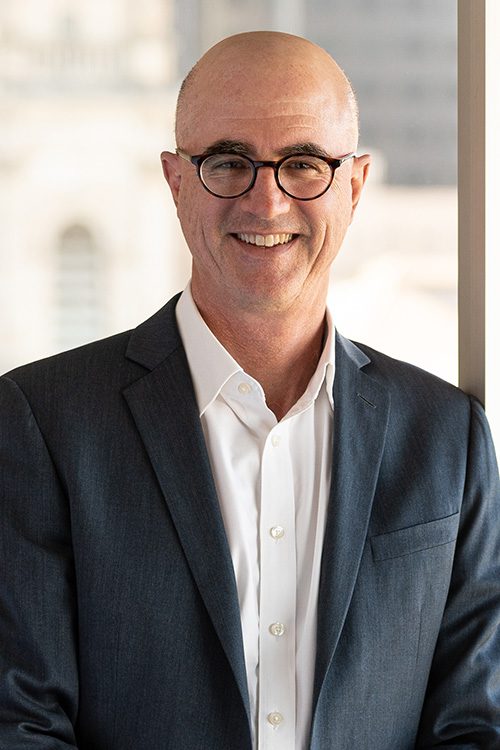A client concerned about investing during market volatility asked, “Why wouldn’t I just throw all my money in an Index strategy, an ETF like the SPDR S&P/ASX 200 Fund. Wouldn’t that be better than picking stocks or investing with fund managers?”
The underlying question my client asked was in fact related to whether Warren Buffet was right when he bet an S&P500 Index would beat hedge funds. The premise of the bet was that if you included fees, costs and expenses, over 10 years an S&P 500 Index fund would do better than if you entrusted it to a bunch of hand-picked hedge fund managers. This $1m wager thrust two fundamental investment approaches against each other: passive and active investing. Buffett won the bet by the way!
Being sceptical pays off
Investors often ask whether active managers can beat the market, not just in the short-term, but over longer periods of time. This is particularly the case when investing during market volatility. To do this you’ll need to find people with superhuman abilities like disregarding mob enthusiasm and focusing on a few important fundamentals. Many Family Office investors that are seeking a different approach with a long-term 20 year+ objective, want to know how this is done.
The process of selecting active managers should be approached with a high degree of scepticism.
Winning in the game of active management requires the greatest of skills for managers as well as investors selecting active managers. The main challenge is evaluating the decision between the prospect of average returns from low-cost Index strategies and the possibility of market beating and uncertain returns from active management.
Active strategies need to beat the market by a significant margin to cover the costs. Throughout a manager selection process, it’s better to avoid associating historical returns with superior acumen, instead developing a system that can tell you what factors have consistently driven past performance.
In property, location is often associated with the best returns. Investment is the same, but it’s people that drive important decisions about investments and its people that matter most when choosing active managers.
Approach to selecting active managers
One of the key challenges in a selection process is how to measure human factors or qualitative metrics. These include ability to clearly articulate and effectively execute a strategy, passion for investing and integrity. We’ve all had managers tell us one thing then do another, feign enthusiasm and so on.
Other good indicators of success include having clear succession plans, offering equity ownership for all staff and management, and having investment teams that invest their own personal wealth in underlying funds. You might also develop your own system of extensive due diligence, portfolio manager interviews, reference checks, consultation with an Investment Committee or even a scorecard system.
In the end, the essential endeavour is in looking beyond financial metrics to uncover the integrity and skills of the investment professionals you choose to invest with.
The best skill is to be able to access an active management team in a way that maximises the alignment between them and you, ensuring they meet your investment objectives. If you cannot align yourself to the manager – e.g., through fees, reporting requirements, structures that protect you against changes in strategy, ownership or key personnel – then do not invest with them!
Key criteria
- People, people, people is to money management what location is to property
- Integrity helps reduce the gap between the interests of fund managers and their clients. Employ managers with high moral standards as this will reduce the severity of conflicts of interest because ethical managers consider client goals when faced with conflicts.
- Loyalty allows long-term thinking to dominate the decision-making process
- Passion: the best managers are obsessive and spend an enormous amount of time finding the best investments. Markets should fascinate them, and this keeps them interested and focussed.
- Caring about risk: know what can be known to help reduce uncertainty. Risk varies inversely with knowledge!
- Incentives: The worst managers are incentivised by seeking to maximise income. We find the worst results come from those planning to maximise funds-under-management and mirror the market. The trap here is that performance comes, performance goes but the fees never falter. Avoid bank products, wealth management products and anyone aligned to corporate ownership structures with commissions and opaque bonus systems. Managers who own their business, allow staff to own the business and make decisions, have clear succession plans, limit the amount of funds and investors, who can make aggressive unconventional investment choices with confidence – these are the ones most likely to beat the market, seek them out.
- Temperament: Independent thinking and emotional stability are hard to measure. But managers with these traits have a good understanding of human nature/behaviour and this is critical to long term investment success.
Getting the band together
When you have these people, all working together in an environment that allows creativity and innovation to invest boldly, demonstrating a high level of professional respect for each other, a willingness to engage with their investor clients to understand their needs, where they work in a firm that is a breeding ground for great careers continuously attracting the best-of-the-best who are all immersed in peak productivity, you just may have found the investment team capable of delivering consistent market beating returns to your portfolio.
William Buck Family Office helps our established investors and multigenerational families build unconventional portfolios designed to survive the passage of time. If you’re an established investor with concerns around investing during market volatility or simply want to make an appointment with William Buck Family Office, please contact your local William Buck Wealth Advisor.



















